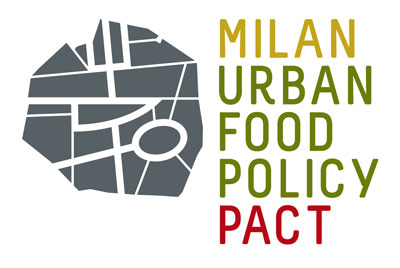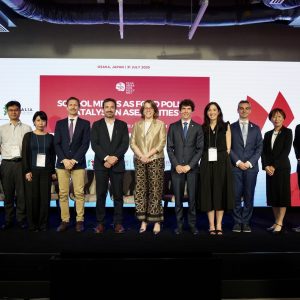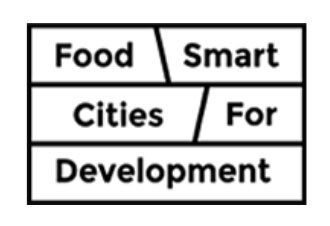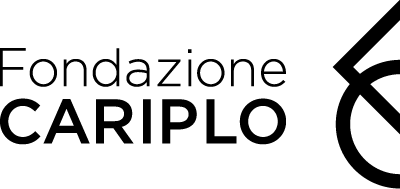As a Champion Mayor of the Cities Feeding the Future Initiative of the School Meals Coalition, Mayor of Seoul, Oh Se-hoon, sat down with the MUFPP to share insights on his city’s pioneering school meals programme.
A member of the MUFPP since 2015, Seoul — a metropolis of over 9.7 million inhabitants — has long been at the forefront of advancing urban food policies. Mayor Oh, currently serving his fourth term since July 2022, is widely recognized for his leadership not only in food policy but also in environmental sustainability.
The interview took place during Mayor Oh’s visit to Milan on 4 July 2025, providing an opportunity to strengthen ties between cities and highlight Seoul’s achievements and challenges in shaping the future of school meals worldwide.
This year marks 10 years of the Milan Urban Food Policy Pact. The Seoul Metropolitan Government (SMG) has been playing a primary role in the Steering Committee of the MUFPP, spurring the food system agenda in Asia-Pacific, thanks also to the organization of the Seoul Urban Food International Conference.
How has the MUFPP been able to boost your food policy agenda at both regional and international level?
MUFPP (Milan Urban Food Policy Pact) has been a key foundation for the Seoul Metropolitan Government (SMG) in establishing and expanding sustainable food policies at both regional and international levels.
Contribution at a regional level. The MUFPP’s six areas of action (governance, sustainable diets and nutrition, social and economic equity, food production, food supply and distribution, and food waste) provided a practical framework for developing Seoul’s Five-Year Basic Food Plan. Through this framework, the SMG has improved food accessibility and reduced food inequality by enhancing the quality of public and school meals for low-income and vulnerable groups.
The SMG has also built a participatory governance model by fostering collaboration among municipalities, academia, industry, and civic groups. Moreover, it has promoted a community-based healthy food culture through initiatives such as urban farming and nutrition education for young people. Throughout this process, the MUFPP has served as both a benchmark and a guide in devising region-specific food policies.
Contribution at an international level. Since 2019, the SMG has led food policies in the Asia-Pacific region as a member of the MUFPP Steering Committee. In particular, the Seoul Urban Food International Conference has been held annually since 2018, serving as a pivotal platform for policy exchanges among MUFPP member cities. In the 2021 conference, under the theme of “Toward a Sustainable and Healthy Food System in the Era of Climate Crisis,” the SMG strengthened international solidarity with the Milan secretariat and global cities, while having discussions on the relationship between climate change and food systems.
In 2024, the SMG presented its dietary policies for citizens at the Global Conference of the Alliance for Healthy Cities, and shared its vision and experiences of building a healthy food environment with cities across the globe. Through the MUFPP network, Seoul has closely collaborated with over 300 member cities, fostering policy innovation and enhancing policy effectiveness and sustainability through global urban solidarity.
Notably, at the 1st (Bandung, Indonesia) and 2nd (Bangkok, Thailand) Asia-Pacific Regional Forums, Seoul actively contributed to policy dissemination by presenting its 5-Year Basic Food Plan and Basic Plan for Citizens’ Nutrition Policy. These plans introduced approaches such as technology- and culture-based urban agriculture and the development of local circular food systems.
In conclusion, the MUFPP has provided a practical framework for Seoul to establish and implement inclusive, sustainable, and citizen-centered food policies. It has also been a key foundation for Seoul to become a leading city in food policy, not only in the Asia-Pacific region but on a global scale. These experiences and best practices will offer meaningful policy insights to other cities around the world facing similar challenges.
We know that one of your priorities has been to improve the health of your citizens through different initiatives and measures, such as the “Seoul Citizens’ Plant-based Environment Promotion Project” (“서울시민 채식환경 조성사업”, “Seoul-simin chaesik hwan-gyeong joseong sa-eop” ), to help increase the vegetable intake for the prevention of chronic diseases, and contribute to broader efforts to address climate change; and the “Nutrition Plus Program” aimed at improving nutrition for pregnant women.
As we really believe these initiatives can serve as an inspiration for other cities facing similar challenges, could you tell us more about them?
The Seoul Metropolitan Government has made the promotion of citizens’ health and the response to the climate crisis its core policy objectives, and has actively pursued prevention-oriented health policies through dietary practices.
The “Seoul Citizens’ Plant-based Environment Promotion Project” is an initiative aimed at encouraging vegetable consumption and reducing greenhouse gas emissions to tackle the climate crisis. Through raising awareness about plant-based diets, expanding related infrastructure, and promoting vegetarian meals in public meal services, Seoul is working to create a vegetarian-friendly urban environment. In 2024, the SMG developed and distributed guidelines and standards for running vegetarian restaurants. In addition, 137 public institutions implemented vegetarian menus, such as “Salad Days,” and the SMG is currently serving a low-carbon meal initiative, “Meals for the Planet,” every Friday. The SMG also conducted a survey of vegetarian restaurants, created a map of vegetarian restaurants, and offered online education, laying a solid foundation for the initiative. In 2025, the SMG is expanding the restaurant survey to all 25 districts and introducing a promotional label to make vegetarian information more accessible to citizens. It also plans to provide nutritional information comparing vegan and non-vegan foods to enhance public engagement.
The “Nutrition Plus Program” is a comprehensive nutrition-management program that provides free nutrition education and supplementary foods to low-income pregnant women and infants. It aims to foster healthy eating habits and address issues such as anemia and growth faltering. The program focuses on improving early-life health and nutrition, offering personalized education led by registered dietitians, as well as interpretation services for multicultural families. It has achieved concrete outcomes in improving dietary habits, reducing the prevalence of anemia, and enhancing child health. As a city-based nutrition management model that also addresses socioeconomic equity, it has garnered international attention as one of the SMG’s key food support policies.
Lastly, to address excessive sugar intake─one of the major risk factors for chronic diseases such as hypertension, diabetes, and obesity─Seoul launched the “Less Sweet 9988 Project” in 2024. A core initiative, “Project to Reduce Sugar Intake in Children,” is a 90-day program designed to raise awareness about reducing sugar consumption among children and their parents. It goes beyond simple nutrition lessons to drive everyday behavior change. Participants join the program through Seoul’s integrated health management platform, the “Wrist Doctor 9988” app, where elementary school children and their parents can track the sugar content in daily snacks, take health quizzes, and build healthier eating habits in a fun and natural way. This family-centered participatory health policy is a symbolic model of Seoul’s prevention-focused approach to public health.
Through these initiatives, the SMG is working to expand plant-based meal options and build a sustainable food environment, aiming to become a global role model that addresses both public health and the climate crisis. Going forward, the city will continue to expand its health policy models by integrating digital technology and citizen participation, and will actively share its experiences and know-hows with cities worldwide, including Milan.

As you might know, the Milan Pact leads the “Cities Feeding the Future” Initiative within the School Meals Coalition. Given your outstanding School Meals Programme – serving over 800 thousand meals daily – you were nominated as Champion Mayor.
In your view, what are the key strengths of your School Meals Programme and do you have any specific commitment for its future?
- The Seoul Metropolitan Government’s (SMG) school meal program is centered on building a comprehensive food supply system to improve the safety and quality of ingredients while promoting eco-friendly agricultural products for the health of growing children and the conservation of the environment.
- To supply high-quality eco-friendly agricultural products for school meals, the SMG established an Eco-Friendly Agricultural Products Distribution Center in 2010. This center houses the nation’s largest and most advanced agricultural product safety inspection system. Currently, 80% of all schools in Seoul receive eco-friendly agricultural products through this system.
- Beginning in 2024, the supply system was expanded to allow kindergartens and daycare centers in Seoul to access the distribution center, enabling them to procure high-quality eco-friendly agricultural products at affordable prices. All agricultural products delivered to the center undergo rigorous safety inspections for pesticides and harmful substances, as well as quality checks, ensuring that only safe and reliable ingredients are provided to schools. To further ensure fairness and transparency, the city has established an “Eco-Friendly Ingredients Committee” composed of experts who advise on pricing, distribution systems, and other relevant matters.
- The SMG aims to increase the proportion of eco-friendly agricultural products used in school meals from the current 60% to over 70%. As part of this effort, school nutrition teachers are encouraged to visit eco-friendly farms to better understand the challenges of organic farming and production processes. The city also actively promotes the benefits of eco-friendly products through public awareness campaigns. In addition, “visiting food education” programs are being offered at kindergartens and daycare centers to instill healthy eating habits in children and emphasize the importance of environmental protection.
- Through these initiatives, the SMG seeks to enhance public awareness, increase preference for eco-friendly agricultural products, and promote their consumption. To establish a stable supply chain, the city also plans to secure long-term contracts with outstanding producers from various regions, rather than relying on a limited number of areas.
The Cities Feeding the Future initiative, coordinated by the Milan Urban Food Policy Pact on behalf of the School Meals Coalition of the World Food Programme, aims to support municipalities in implementing effective, inclusive, and sustainable school meals programmes.
With over 100 countries — including the Republic of Korea — endorsing the Coalition, this initiative plays a key role in bridging the gap between local governments and national policies, while empowering cities to lead the way in shaping the future of food systems through school meals.
As part of this initiative, MUFPP proposed Mayor Oh Se-hoon of Seoul as a Champion Mayor, in recognition of the long-standing commitment to school meals program carried out in Seoul.
Read more about the Cities Feeding the Future initiative













